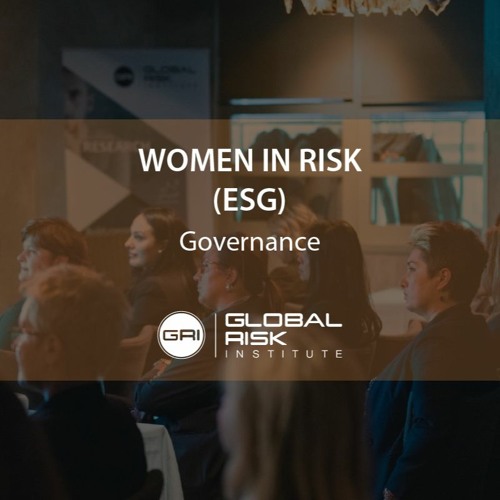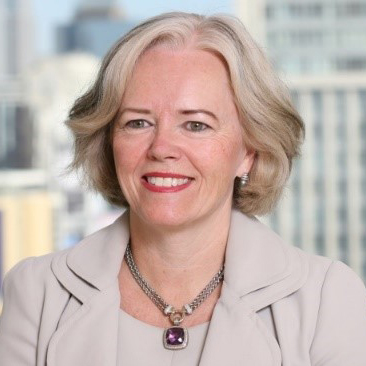
KEY HIGHLIGHTS FROM OUR WOMEN IN RISK 2021 SERIES - APRIL 20, 2021 DISCUSSION WITH CORPORATE DIRECTORS JANE KINNEY AND SONIA BAXENDALE
In the first of a three-part series on environment, social and governance (ESG) issues facing the financial sector, we engaged our members in a thoughtful discussion on Governance: The Board’s Role in Aligning Value and Values.
We gained insights from two experienced board directors:
- Jane Kinney, Corporate Director at Cenovus Energy and Intact Financial; formerly Vice Chair of Deloitte and member of its Executive Leadership team, Deloitte Canada’s Chief Risk Officer and Managing Partner Quality and Risk, member of the Canadian firm’s Board of Directors and Board Risk Committee.
- Sonia Baxendale, President and CEO of the Global Risk Institute and Corporate Director at several organizations – among them: Laurentian Bank, Foresters, Financial RSA Group, NT Butterfield Bank in Bermuda, Sick Kids Foundation (Chair); formerly a Senior Executive at CIBC.
Whether despite the pandemic or because of the pandemic, ESG has risen to the top of corporate and board agendas over the past year, after decades of being on a low simmer. Most board directors believe that key ESG issues such as climate and human rights should be considered when developing company strategy, and that companies should be doing more to promote gender and racial diversity. At the same time there is less support for concrete actions such as committing to targets, and little understanding about how ESG impacts business outcomes. Following, are highlights of some key insights offered by Jane and Sonia on how boards view ESG and what actions they are taking to align value with values to ensure the long-term competitiveness and sustainability of companies.
Key Takeaways:
Social and environmental issues should be on board agendas. Although ESG issues do fall within fiduciary duty and the duty of care, board directors see these issues as being beyond a legal obligation, but are important moral and competitiveness issues. Despite pressure on short-term share value, boards need to focus on long-term sustainability and success of the company which by necessity includes ESG. They must consider the needs and impacts on multiple stakeholders – shareholders, employees, customers and policymakers – and reputational risk, which has become top of mind. Investors care greatly about climate change and other ESG issues. Investors are becoming more active in demanding greater climate-related strategies, reporting and disclosure. Markets in the UK and Europe are ahead of Canada in this space, primarily because their regulation has been more prescriptive. Despite some differences, Canadian financial sector institutions are active on ESG issues and the gaps with the UK and Europe are narrowing.
Boards are key to embedding ESG into their corporate culture, shaping values and the way organizations do business. “Tone from the top” – from the Board, from the CEO – clearly matters. If boards only ask about financial issues and short-term performance, management will take their lead from that. Responsibility for ESG needs to be clear, incorporated appropriately into board committees and woven throughout each organization. Ultimately, everything must tie back to, and reflect, a well-integrated strategy.
Tying executive compensation to ESG targets is necessary. To successfully integrate ESG into strategy, the products we deliver, the suppliers we do business with, our relationships with employees and clients requires appropriately tailored metrics and targets. These ESG goals need to be set and tracked, and should be linked with compensation appropriately balanced with other financial objectives in order to drive results.
ESG standards and reporting, materiality assessments are important and evolving. Board directors should be involved and aware of materiality assessments of ESG issues, and ensure they are reported on accordingly. The IFRS has recognized that corporate disclosures around sustainability are inconsistent, in need of standardization, and efforts are underway. When it comes to reporting on financially material climate risks, companies and investors are coalescing around the TCFD. Until standardized regulations on ESG reporting are established, existing disclosure recommendations serve as valuable guideposts.
Targets make a difference. Boards provide leadership and oversight in getting plans and processes established through the company, and enable delivery to meet established targets. Advances have been made in achieving gender parity from organizations that have set relevant targets and held management accountable in meeting them. To gain momentum, boards need to think about management and leadership structures and whether targets will help create a diverse pool, not only for women but for racial diversity as well.
Closing thoughts on Governance. Whether we are women aspiring to be on boards or those who are already there, we each play a role in supporting other women and achieving greater gender parity and diversity in corporate governance.
To hear more from Jane Kinney and Sonia Baxendale on ESG, corporate governance and what boards can do to oversee emerging non-financial risks, we invite you to listen to the full webinar Governance: The Board’s Role in Aligning Value and Values
SPEAKERS

Jane E. Kinney – BMath, FCPA, FCA
Corporate Director and Retired Vice Chair, Deloitte

Sonia Baxendale
President and Chief Executive Officer, Global Risk Institute
Other events in our Women in Risk 2021 series include:
SOCIAL: WOMEN, THE PANDEMIC AND THE ECONOMIC REPERCUSSIONS WITH SARAH KAPLAN –
Thursday April 29, 11 am – 12 noon
ENVIRONMENT: THE FINANCIAL SECTOR AND CANADA’S PATH TO NET ZERO WITH MIRANDA HUBBS
AND AMY WEST – Wednesday May 12, 11 am – 12 noon

